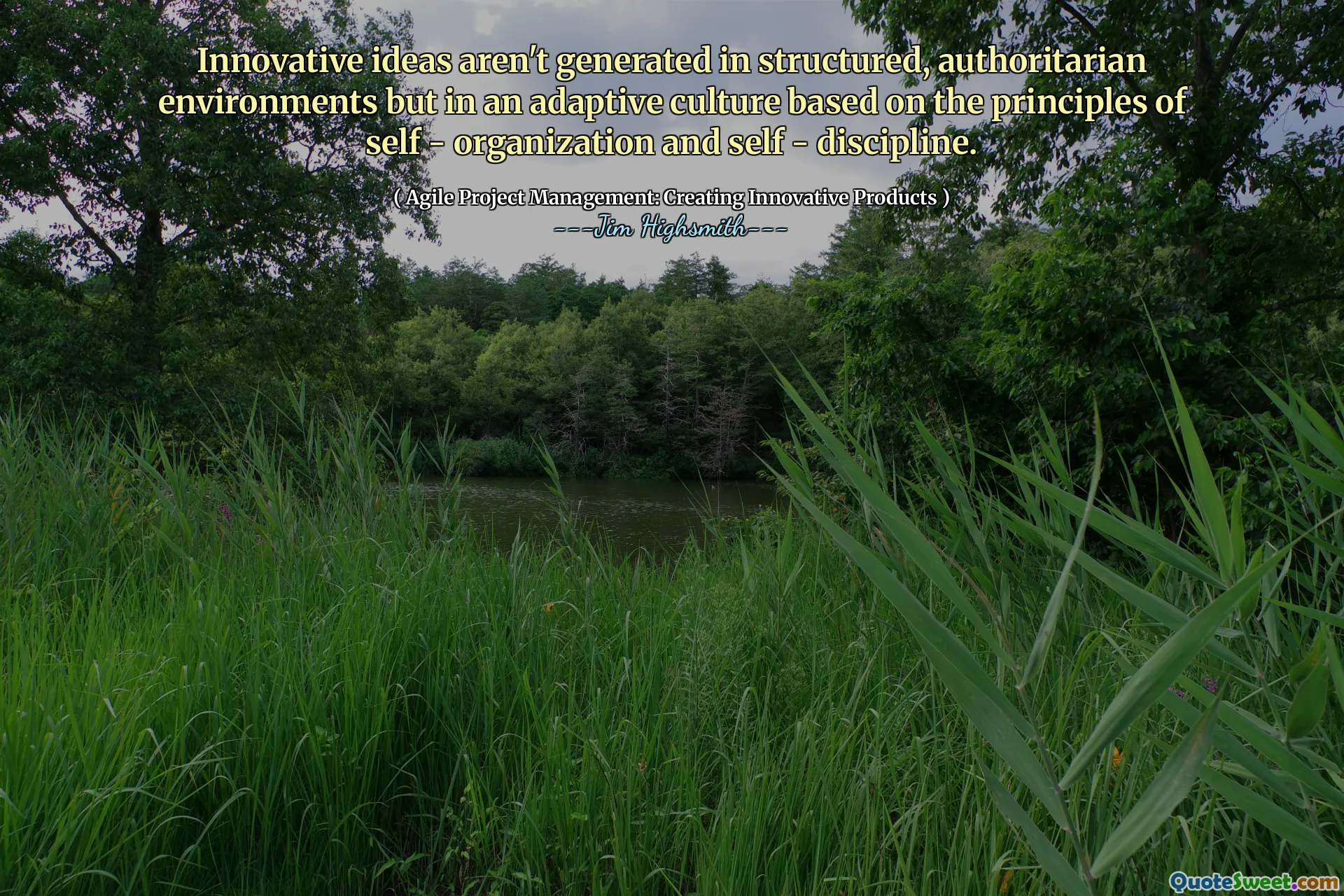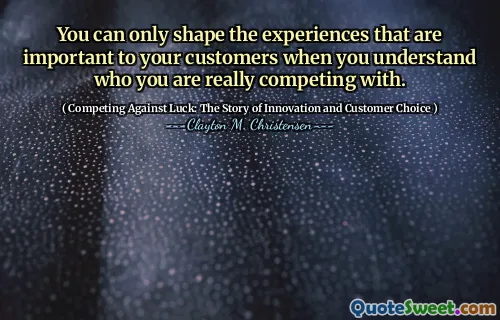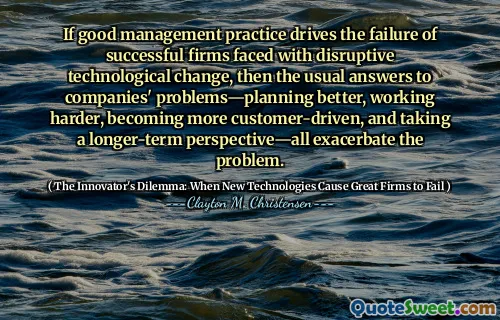
Innovative ideas aren't generated in structured, authoritarian environments but in an adaptive culture based on the principles of self - organization and self - discipline.
This quote emphasizes the profound relationship between organizational culture and the generation of innovation. Traditional structured and authoritarian environments often impose rigid controls and top-down decision-making processes, which can stifle creativity and hinder spontaneous idea development. Conversely, environments that foster adaptability, autonomy, and self-organization encourage individuals to take ownership of their work, experiment freely, and collaboratively explore new possibilities. Such a culture nurtures psychological safety, enabling team members to share unconventional ideas without fear of retribution or immediate rejection. When self-discipline underpins these environments, it ensures that while flexibility and freedom are prioritized, there remains accountability and focus. This balance between freedom and discipline creates fertile ground for innovation because individuals feel empowered, responsible, and connected to the broader vision. The Agile methodology and similar frameworks capitalized on these principles by promoting iterative thinking, continuous feedback, and collaborative decision-making. Companies invested in nurturing such adaptive cultures often outperform their rigid counterparts in developing novel solutions and maintaining competitive advantages. Ultimately, fostering an organizational atmosphere that values self-organization and discipline can ignite a sustainable cycle of innovation, where ideas evolve organically and are refined through collective effort. This approach not only produces fresh insights but also builds resilient, motivated, and forward-thinking teams essential for ongoing growth in a rapidly changing world.






